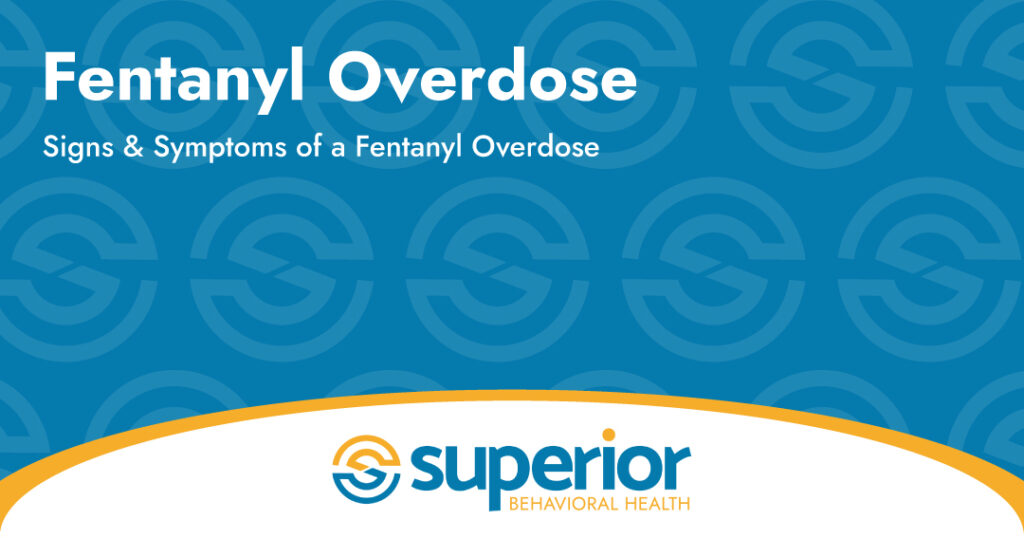The birds chirped outside as you woke up in a bright hospital room. A pounding headache made you want to close your eyes and ears to the stimulus. A doctor is standing over you. He tells you that you experienced a fentanyl overdose, and he tries to convince you to stop taking fentanyl. However, you already feel the cravings. The doctor tells you that you might die if you have another fentanyl overdose. He says you could have an appointment with someone who can help in a few days, but you don’t know if you can wait that long.
In 2021, 5,174 people died from unintentional overdose in Ohio, and 80% of those involved fentanyl. Many people run into situations where they get an appointment, but it is days away. By the time the appointment comes, they have changed their minds about getting treatment. Superior Behavioral Health offers same-day appointments that allow you to start your recovery journey today. Getting treatment for fentanyl use disorder is the best way to avoid a fentanyl overdose. Today, we will discuss what it is and what to do if it occurs.
What Is a Fentanyl Overdose?
A fentanyl overdose happens when someone takes more fentanyl than their body can physically handle. It is a medical emergency that can be a fentanyl side effect. If an overdose is suspected, call 911 immediately. An overdose can happen to anyone, whether it is your first time or your 100th time taking fentanyl. It can even happen if you have taken the same dose before with no effects. Fentanyl overdoses can also occur if you do not know you are taking fentanyl. Fentanyl can be mixed with other substances to make them cheaper and more potent. In Ohio, you can use fentanyl test strips to test if the substance you are using contains fentanyl or not. If someone has experienced multiple fentanyl overdoses, it can be one of the signs of fentanyl addiction.

Signs & Symptoms of a Fentanyl Overdose
Understanding the signs of a fentanyl overdose can help save someone’s life. These might include small pupils or gurgling sounds, or they might have slow and weak breathing or pulse. Their body will often be limp and unconscious, and their skin will feel cold to the touch. They might also have discolored skin around the lips and nails.
Dangers of an Overdose
A fentanyl overdose is a medical emergency, and if left untreated, it can lead to death. Naloxone can reverse the effects of a fentanyl overdose. In Ohio, you can get naloxone from a pharmacist without a prescription. It will not cause harm if an overdose isn’t happening, so it is safest to administer it when an overdose is suspected.
In The Event of an Overdose
In Ohio, under the Good Samaritan law, you can provide care to someone who requires medical attention without fearing being held liable for worsening conditions. If someone is experiencing an overdose, call 911 before you do anything else. Stay with the person until first responders come. If naloxone is available, administer it as soon as possible. If you can, keep the person awake and make sure they are breathing. If they lie down, put them on their side to prevent choking.
Who Is at Risk of a Fentanyl Overdose?
Anyone who uses fentanyl is at risk for an overdose. All it takes is one dose. It doesn’t matter if it is your first time taking fentanyl or if you’ve been taking fentanyl for years – an overdose can happen at any time. However, some factors can play a role in increasing one’s odds of experiencing an overdose.
Risk Factors for Fentanyl Overdose
People might experience an overdose if they have undergone fentanyl treatment in the past and have returned to use. An overdose occurs because after they have experienced fentanyl withdrawals, their body is unable to handle as much fentanyl as they were once tolerant to. Many people, when they return to use, think that they can use the same amount as before they went into treatment. Other risk factors that might increase one’s chances of having an overdose include a history of overdoses. If you have had one overdose in the past, you are more likely to have another one. Suppose you mix fentanyl with other substances, such as alcohol or cocaine. In that case, you have a higher chance of experiencing an overdose. Physical health concerns such as HIV, heart disease, and hepatitis can result from fentanyl use and an overdose.

Get Treatment for Fentanyl Use at Superior Behavioral Health
The best way to prevent a fentanyl overdose from happening is to seek treatment. Treatment can seem like a terrifying experience, but it can also be gratifying. You do not have to reach recovery from fentanyl on your own. Located in Garfield Heights, OH, Superior Behavioral Health helps you build solid foundations for your recovery. We are a small, intimate facility, meaning we can help you as an individual achieve the goals you have for yourself and your recovery journey. For more information or to get started today, call us at 216-435-1110.
FAQs About Fentanyl Overdose
How many people have died from fentanyl?
In 2021, 70,601 people died from fentanyl across the US.
How does Narcan work?
Narcan, also known as naloxone, reverses an overdose caused by opioids by blocking the effects and restoring breathing. It only works if opioids are in the person’s system and does not cause harm if an overdose is not occurring


